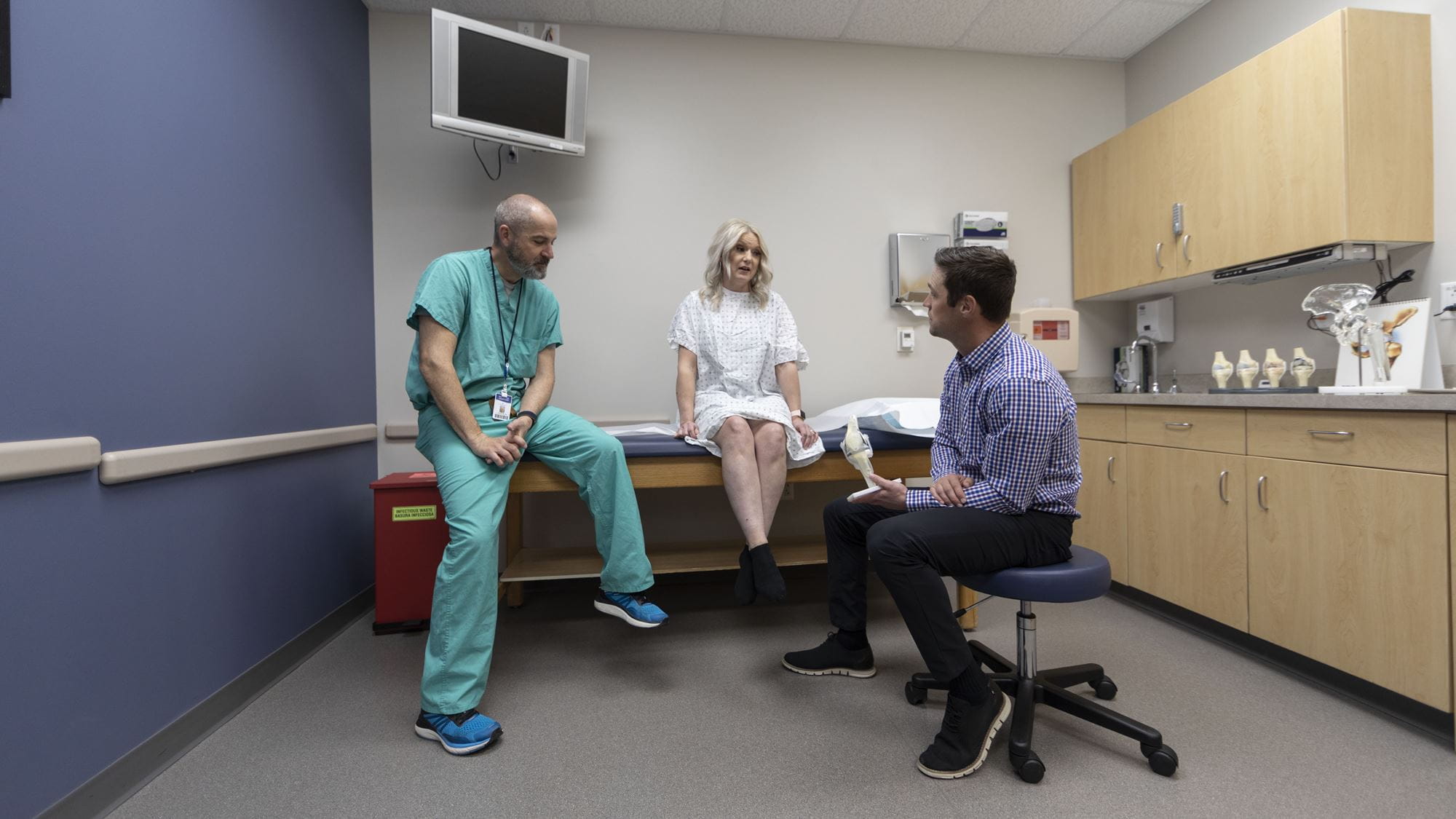What is ACL reconstruction?
An ACL tear is a common knee injury, especially in people who do sports that involve high-speed turning, twisting, and jumping, high-speed stops, and blows to the knee. These commonly happen in sports such as soccer, basketball, football, and skiing.
ACL reconstruction may be recommended if:
- Your knee gives out or feels unstable during everyday activities.
- You have ongoing knee pain or other injured ligaments.
- You still have symptoms even after physical therapy and rehabilitation.
- Your job requires knee strength or you are very active in sports.
- You are willing to go through a long-term rehabilitation program.
Where does the new ligament come from?
What are the risks and/or side effects?
Talk with your healthcare provider about benefits, risks, and alternatives to ACL reconstruction. Also ask about the time and effort it will take to recover. There are certain risks that come with any surgery, such as:
- Allergic reaction to anesthesia
- Breathing problems
- Bleeding
- Infection
Other risks specific to ACL surgery include:
- Blood clots in the leg
- The ligament does not heal
- The surgery does not relieve symptoms
Alternatives to ACL reconstruction include physical therapy and rehabilitation exercises, and knee braces.
What are the benefits?
Potential benefits include:
- Increased strength and stability in the knee
- Decreased pain
Frequently Asked Questions
How do I prepare?
- Take some time off of work or arrange to work from home.
- Ask a responsible adult drive you to and from the surgery center and to stay with you at home for 24 hours.
- Arrange for help at home for the first few days after surgery.
- Make a list of all the medicines you are taking and bring it with you to the surgery center. Be sure to include all prescriptions, over-the-counter remedies (such as allergy pills or cough syrup), inhalers, patches, vitamin supplements, and herbal remedies.
- Follow all instructions from your surgical team about eating and drinking before your procedure.
What happens during surgery?
Before surgery, an anesthesiologist will talk with you about pain control. You may have general anesthesia (you sleep through the procedure) or regional anesthesia (blocks feeling in your legs). The surgery is done by an orthopedic surgeon and usually takes between 60 and 90 minutes. The basic steps include:
- Making small incisions. For this type of surgery (called arthroscopy), the surgeon typically makes 3 or 4 small incisions (cuts) around the knee and inserts small instruments that will be used to make repairs. Sterile fluid may also be added to expand the area and make it easier to see and work on.
- Preparing for the graft. The surgeon takes out the damaged ACL. If you’re having an autograft, there will be another incision for removing replacement tissue (graft) from another part of your leg.
- Placing the graft. The surgeon drills small holes in your thigh and shin bones where the graft will be placed. Screws, stapes, or posts are used to help hold the graft in place. As it heals, the holes in the bone fill in and help keep the new ligament in place.
- Closing the wound. The surgeon will close the wound with sutures (stitches) or staples and cover it with a dressing.
When will I know the results?
What should I expect after surgery?
In the first days after surgery, expect to have a swollen leg and a thick dressing covering the surgical wounds. To care for yourself and your incisions:
- Take pain medicines as prescribed.
- Keep your leg raised above your heart for the first few days.
- Use ice to relieve pain and swelling.
- Keep your dressings clean and dry. Don’t shower, take a bath, go swimming or soak in a hot tub until your doctor says it’s okay.
- Wear compression stockings (T.E.D. hose) until your doctor says it’s okay to stop.
- Start your recovery exercises as soon as your doctor recommends.
- Use your assistive devices (crutches, brace, etc.) exactly as recommended to keep from injuring your knee.
- You may go back to work when your doctor says it’s okay. This is usually within one week.
- You can return to sports when your muscles are healed and you no longer have any swelling. Talk with your doctor before returning to sports.
When should I call the doctor?
Watch for problems, and call your doctor if you experience any of the following:
- Your knee keeps bleeding (small spots might show on the bandages, but they shouldn’t spread).
- You have pain that you cannot control.
- Pus or foul-smelling liquid drains from your knee.
- You have chills or a fever over 101° F (38° C).
- You have nausea and vomiting that does not stop.
- Your knee continues to swell or feel numb, and elevating your leg or loosening your bandage doesn’t help.
- Your foot or ankle starts to change color.


